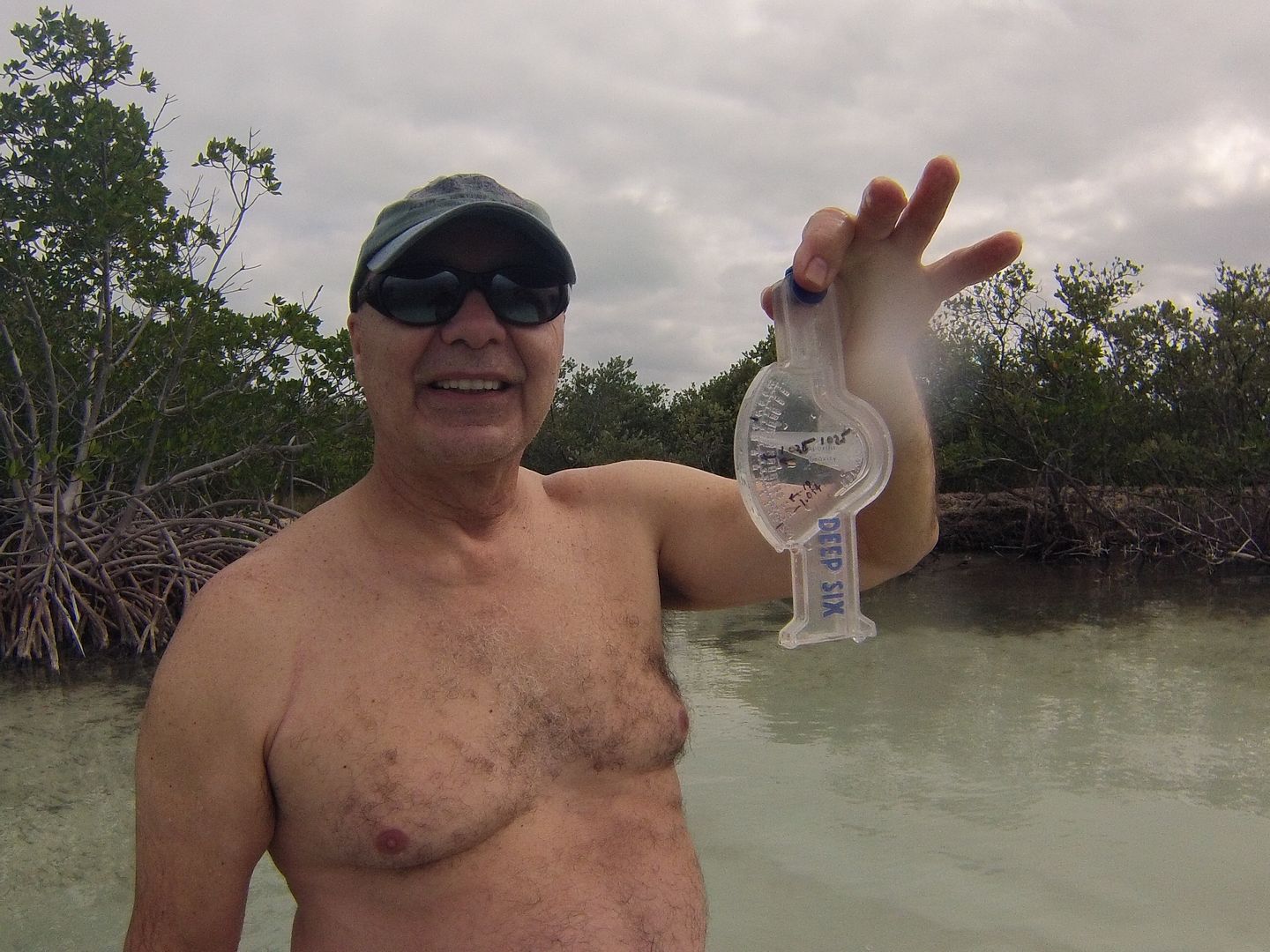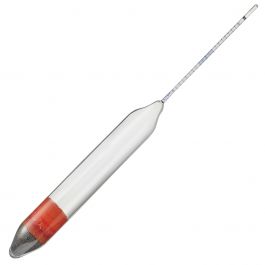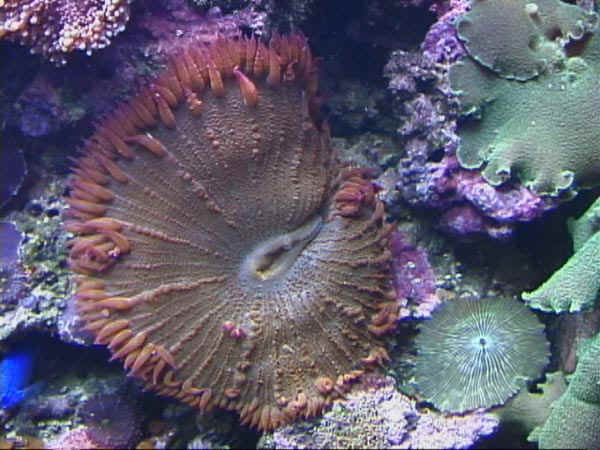I want to be you when I grow up. Until then, I am stuck living out my child hood fantasies in a desert oasis with no access to ocean water.This is so easy and silly. Like I said many times, take your cheap swing arm hydrometer to where ever your fish was collected. Jump in the water with the thing and using a permanent marker draw a line on it where the arm floats. No calibration, no nothing and it's perfect, more perfect than the most expensive refractometer.

Navigation
Install the app
How to install the app on iOS
Follow along with the video below to see how to install our site as a web app on your home screen.
Note: This feature may not be available in some browsers.
More options
You are using an out of date browser. It may not display this or other websites correctly.
You should upgrade or use an alternative browser.
You should upgrade or use an alternative browser.
Conductivity vs Refractometer
- Thread starter Jeepjeep_0
- Start date
- Tagged users None
I just wanted to clarify what calibration solutions work best for me:
- The AccuraSea Calibration Solution that I use is pure natural seawater, not a prepared solution ..." AccuraSea NSW is pure, natural seawater in its most nutrient-poor form as found on coral reefs. We collect AccuraSea NSW near actively growing coral reefs and immediately filter it to 5 microns, then UV sterilize it. This assures that it is free of pathogens and chemically stable for years". I use this to calibrate both my Hanna conductivity meter and my Refractometer.
- The other calibration solution I use is Randy's refractor formula to calibrate my refractometer only, not conductivity meters, like the Hanna and PinPoint meters I have. The specific solution I have was prepared in a professional lab, using Randy's formula.
No, do you see me standing in the water in that tropical place next to a mangrove Island?I thought it was us English that were meant to have a sarcastic sense of humour...you are joking right?
Do you see the black lines on the hydrometer? Thats how I calibrated it and it was very far off.
I even took it SCUBA diving for fun.
Been using it probably from the 80s.
I am going to change your life so you don't have to keep worrying about this. I'll just post a link and say nothing.

 www.bulkreefsupply.com
www.bulkreefsupply.com

High Precision Hydrometer
Ensure that your equipment is reading correctly and your aquarium is at the right salinity with Tropic Marin's High Precision Hydrometer. Many tank inhabitants are sensitive even to minor changes of the water conditions. Unfortunately as we've all experienced, salinity reading equipment as...
Randy Holmes-Farley
Reef Chemist
View Badges
Staff member
Super Moderator
Excellence Award
Expert Contributor
Article Contributor
R2R Research
My Tank Thread
- Joined
- Sep 5, 2014
- Messages
- 67,325
- Reaction score
- 63,669
I am going to change your life so you don't have to keep worrying about this. I'll just post a link and say nothing.

High Precision Hydrometer
Ensure that your equipment is reading correctly and your aquarium is at the right salinity with Tropic Marin's High Precision Hydrometer. Many tank inhabitants are sensitive even to minor changes of the water conditions. Unfortunately as we've all experienced, salinity reading equipment as...www.bulkreefsupply.com
Unless you validate it in a calibration solution, how do you know it is accurate?
It's become quite chic in reefing to push floating glass hydrometers, and they can be fine, but they have substantial drawbacks (like temperature measurement and correction, and the need for a deep sample), which is why chemists use conductivity.
- Joined
- Mar 12, 2019
- Messages
- 4,664
- Reaction score
- 3,490
Unless you validate it in a calibration solution, how do you know it is accurate?
It's become quite chic in reefing to push floating glass hydrometers, and they can be fine, but they have substantial drawbacks (like temperature measurement and correction, and the need for a deep sample), which is why chemists use conductivity.
Ok you have convinced me to make a large DIY calibration solution to check mine, it better be correct as I love the thing.
I agree it can be a pain to use the TM hydrometer but once you get in the swing of it, it’s surprising easy.
Granted everyone’s circumstances are different, for me my tank is around 26c, time I add the tank water in the measuring cylinder it has dropped to 25c or out maybe 0.1c, my only real concern is breaking the thing.
I’m a fan of the Hanna + floating glass hydrometer.
I use the Hanna for everything and occasionally pull out the floating hydrometer to just double check my calibration of the Hanna.
I will admit I have not checked the accuracy of either device yet. So far only got it validated by my coral.
I use the Hanna for everything and occasionally pull out the floating hydrometer to just double check my calibration of the Hanna.
I will admit I have not checked the accuracy of either device yet. So far only got it validated by my coral.
Because I have a pen I can calibrate and check, and I REALLY need to, i have another hydrometer AND a refractmeter.Unless you validate it in a calibration solution, how do you know it is accurate?
It's become quite chic in reefing to push floating glass hydrometers, and they can be fine, but they have substantial drawbacks (like temperature measurement and correction, and the need for a deep sample), which is why chemists use conductivity.
I can have multiple ways to check things you know! I do though, with ALK alone I have 3 ways to test it.
Randy Holmes-Farley
Reef Chemist
View Badges
Staff member
Super Moderator
Excellence Award
Expert Contributor
Article Contributor
R2R Research
My Tank Thread
- Joined
- Sep 5, 2014
- Messages
- 67,325
- Reaction score
- 63,669
Just checked my TM Hydrometer with calibration fluid, I got 1.0265, considering all the variables I’m happy with that.
Mine was accurate, but you know what they say about folks who assume. lol

Chemistry and the Aquarium: Specific Gravity: Oh How Complicated!
This month, Randy explains and reviews specific gravity.
For the standard type Tropic Marin hydrometer, I got a 77 °F/77 °F specific gravity of about 1.0265 ± 0.0003 (Figure 4), which compares well to the expected value of 1.0264.
Figure 4. A Tropic Marin hydrometer showing the meniscus rising to about 1.0260, but the actual reading is about 1.0265.
That is certainly true Randy. But who cares? That five thousandth of a degree of salinity will change more than that when it rains. I have lived through some monsoons and OMG.Figure 4. A Tropic Marin hydrometer showing the meniscus rising to about 1.0260, but the actual reading is about 1.0265.
I think we are getting way to accurate for a measurement that doesn't mean much.
Here in New York in the Atlantic Ocean the salinity varies so much that sometimes I could keep frogs in the water. I usually, but not always have to add some ASW to my collected water. If I cared about that little of a variation, I would have to blow my head off.
Fish and corals don't read these threads so they don't care at all.
Randy Holmes-Farley
Reef Chemist
View Badges
Staff member
Super Moderator
Excellence Award
Expert Contributor
Article Contributor
R2R Research
My Tank Thread
- Joined
- Sep 5, 2014
- Messages
- 67,325
- Reaction score
- 63,669
That is certainly true Randy. But who cares? That five thousandth of a degree of salinity will change more than that when it rains. I have lived through some monsoons and OMG.
I think we are getting way to accurate for a measurement that doesn't mean much.
Here in New York in the Atlantic Ocean the salinity varies so much that sometimes I could keep frogs in the water. I usually, but not always have to add some ASW to my collected water. If I cared about that little of a variation, I would have to blow my head off.
Fish and corals don't read these threads so they don't care at all.
It was actually perfectly accurate. The figure caption was explaining how folks should properly read a hydrometer when a meniscus is present.
- Joined
- Mar 20, 2020
- Messages
- 531
- Reaction score
- 440
My LFS uses Milwaukee for Salinity test and everytime I bring it in they tell me its 1.027 to .028 I have the hanna and check it often enough and always sitting at 35 also checked with refractometer calibrated with refrac solution and its sitting at 35 so my guess is that the store doesnt clean the glass right away as they should.
@Randy Holmes-Farley do you know how much variations in salinity affects testing our other parameters (ph, alk, cal, etc.)?
Randy Holmes-Farley
Reef Chemist
View Badges
Staff member
Super Moderator
Excellence Award
Expert Contributor
Article Contributor
R2R Research
My Tank Thread
- Joined
- Sep 5, 2014
- Messages
- 67,325
- Reaction score
- 63,669
@Randy Holmes-Farley do you know how much variations in salinity affects testing our other parameters (ph, alk, cal, etc.)?
Sure. Aside from ORP, pH, temperature, and dissolved gases, all other parameters scale exactly with salinity.
So normal seawater at 35 ppt has 420 ppm calcium, the same seawater at 34 ppt will have 34/35 X 420 ppm = 408 ppm.
Same can be doen with specific gravity using the numbers other than the 1. So seawater with a sg of 1.0264 and calcium at 420 ppm will, at a sg of 1.0250, have 250/264 x 420 ppm = 398 ppm.
The pH effect of salinity is very complicated, but small. Adding totally pure water at pH 7.0 to seawater at pH 8.1 actually raises the pH a bit higher than the starting 8.1. the reason is that the salinity impacts the tendency of bicarbonate to become carbonate;
HCO3- --> CO3-- + H+
Lower salinity makes that less likely to happen, and the pH rises.
- Joined
- Mar 12, 2019
- Messages
- 4,664
- Reaction score
- 3,490
Glad your post gave me the push to check mine, as it needed checking, the glass blower could have had a heavy night before making mine!Mine was accurate, but you know what they say about folks who assume. lol
Have to say your DIY calibration fluid worked a treat too.
Going to buy an airtight bottle to store some in, will come in handy for checking the refractometer.
- Joined
- Oct 9, 2019
- Messages
- 243
- Reaction score
- 318
Alright getting ready to calibrate my two Refractometers & my Hannah HI98319. Just to make sure I have the recipe right, and that these solutions should be 1.026sg on their respective salinity testing device.
Im Using:
RODI water @ aquarium temperature.
Morton’s Table Salt (non iodized)
Refractometer -
3.29 grams salt mixed with 96.71 grams of water.
Hanna (Conductive) -
3.65 grams salt mixed with 96.35 grams of water.
Im Using:
RODI water @ aquarium temperature.
Morton’s Table Salt (non iodized)
Refractometer -
3.29 grams salt mixed with 96.71 grams of water.
Hanna (Conductive) -
3.65 grams salt mixed with 96.35 grams of water.
- Joined
- Mar 12, 2019
- Messages
- 4,664
- Reaction score
- 3,490
Alright getting ready to calibrate my two Refractometers & my Hannah HI98319. Just to make sure I have the recipe right, and that these solutions should be 1.026sg on their respective salinity testing device.
Im Using:
RODI water @ aquarium temperature.
Morton’s Table Salt (non iodized)
Refractometer -
3.29 grams salt mixed with 96.71 grams of water.
Hanna (Conductive) -
3.65 grams salt mixed with 96.35 grams of water.
Not sure why they are different, if Randy’s diy recipe I’m sure there is a good reason but the 3.65g salt one should work for both as it will read 1.026.
- Joined
- Oct 9, 2019
- Messages
- 243
- Reaction score
- 318
Yeah not sure, I guess for the same reason the Hanna Satchets say to not use in the refractometer.Not sure why they are different, if Randy’s diy recipe I’m sure there is a good reason but the 3.65g salt one should work for both as it will read 1.026.
- Joined
- Oct 9, 2019
- Messages
- 243
- Reaction score
- 318
How big of a variance do you have between Your Hannah and hydrometer? Are you using the Hannah HI70024 35.00 ppt solution to calibrate the Hannah?I’m a fan of the Hanna + floating glass hydrometer.
I use the Hanna for everything and occasionally pull out the floating hydrometer to just double check my calibration of the Hanna.
I will admit I have not checked the accuracy of either device yet. So far only got it validated by my coral.
Last edited:
Similar threads
- Replies
- 7
- Views
- 289
- Replies
- 5
- Views
- 141
-
- AMS: Article
- Replies
- 11
- Views
- 1,313
- Replies
- 2
- Views
- 74


















